On hot days you sometimes need to lower the temperature in the room. This allows you to maintain a better level of comfort and has a positive effect on work efficiency. Read our article about which cooler to choose for both your home and office. Find out how an air cooler works and how it differs from an air conditioner.
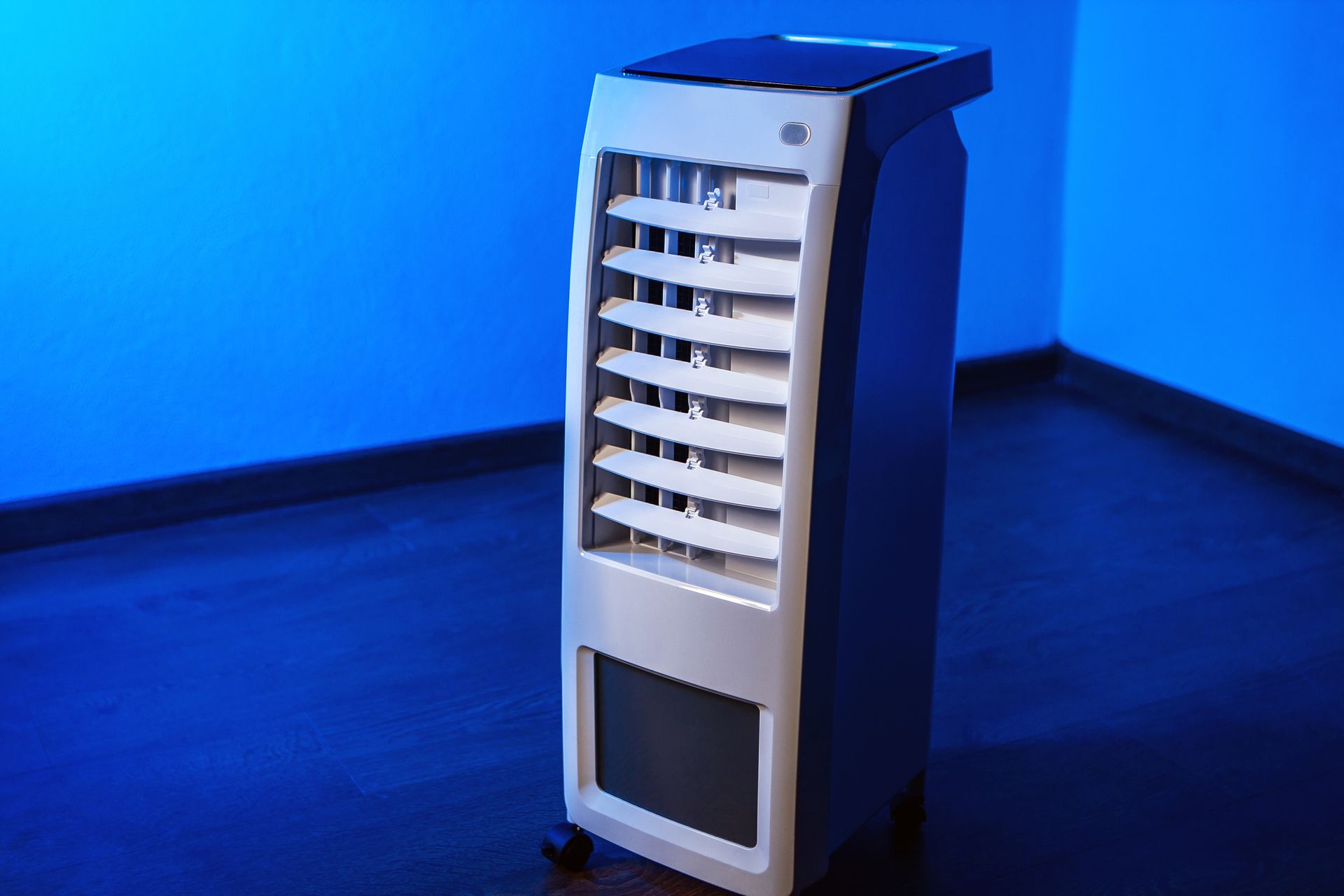
On hot days you sometimes need to lower the temperature in the room. This allows you to maintain a better level of comfort and has a positive effect on work efficiency. Read our article about which cooler to choose for both your home and office. Find out how an air cooler works and how it differs from an air conditioner.
The temperature in rooms rises a lot in the summer, and in such conditions it is often difficult to work and relax. Difficulty falling asleep or paying attention, as well as headaches, are some of the most common symptoms of hyperthermia. If this condition is prolonged, it could result in dehydration of your whole body. It could even lead to a health or even life-threatening heat stroke.
Luckily, there are many devices that let you lower the temperature in rooms. The most popular are various types of fans, air conditioners and portable air coolers.
What is an air cooler and how does it work?
Air coolers and air conditioners – what’s the difference? Air conditioners are very complex systems, requiring an installation that moves heated air to the outside of the building. Air conditioning systems are currently popular in both commercial and private premises. They can very effectively lower the temperature in a given place, additionally reducing air humidity.
Unfortunately, air conditioners also have a number of disadvantages. First of all, the assembly of this type of installation is expensive and can sometimes be quite problematic. Air conditioners require a permanent connection to the air outside the building – air is drawn in, cooled and then, thanks to a network of ventilation ducts, removed together with excess moisture. This requires the installation of a special fan, compressor and condensers.
For architectural reasons, this type of installation is often not possible on the facades of historic or very modern buildings. Air conditioners can be noisy, they sometimes leak water, and installation works can damage the facade of the building, so additional consent from each resident of a given building will sometimes be needed to install air conditioning in a private apartment. Such systems are also expensive to service, they often operate using harmful freon, and – unfortunately – they consume a lot of electricity.
A portable air cooler is a much more convenient, and sometimes equally effective, way to cool the air on hot summer days. Such coolers are much cheaper and fully mobile, letting you easily move them from room to room as needed. No additional installation elements need to be connected with the air outside the building and they are very easy to service. They are most efficient in rooms up to approx. 30sqm.
Air coolers work by cooling the air with special, water-soaked pads (sometimes also e.g. ice cubes). The hot air that is sucked in gives off heat when flowing through the pads, and after cooling and additional humidification is pushed out by a fan. The higher the temperature in the room, the more effective air coolers will be. The level of humidity is also important, as the lower it is, the more they will cool the air. For this reason, they are perfect especially on hot and dry summer days.
Types of portable air coolers
Portable air coolers come in many different models. Choosing the right one depends on your needs and the size of the room. You should therefore get to know the key parameters:
- air flow in cubic metres/hour,
- work efficiency at a given air humidity,
- water tank capacity/number of pads.
Modern air coolers also have a number of additional features, such as options for air purification, humidification and ionisation. Some types of air coolers can also blow out warm air, making them universal devices. They provide comfort both on hot summer days and cold winter evenings, when additional heating of a given room is sometimes necessary.
What should you pay attention to when buying an air cooler, and also later on?
Which air cooler should you choose? In addition to familiarising yourself with the technical specifications regarding performance, conditions of use and additional features, you should also take into account factors that have a direct impact on the comfort of daily use. These could be:
- Mobility – it is better to go for models will a relatively compact design. Carrying handles and wheels are also important, making it much more convenient to change their location depending on your needs.
- Ease of use – remote-controlled models are the best, letting you efficiently change the settings without having to get up from the couch or take a break from your work.
- Performance adjustments – check whether the cooler has the option to adjust the cooling power and fan speed.
- Energy efficiency – a good air cooler will not consume much power, making it economical to use and environmentally friendly.
You should also check the convenience of basic aspects of daily use beforehand – easy access to the water tank and how to replace the filters and pads. How to clean the device and how loud it will be are other aspects to bear in mind.
How do air coolers work? – summary
As the weather gets warmer, dilemmas arise as to whether to buy a tower fan or invest in an air cooler or air conditioning system. Each of these devices has its pros and cons. Your choice should depend on many factors.
If you have a small apartment in a block of flats with windows only facing onto a dark courtyard, you will rarely face the issue of high temperatures at home. In this case a good quality fan should do. If, however, you have an open space office on one of the higher floors in a glass building, you may need to purchase and install professional air conditioning. The same applies to large apartments located in low attics.
In most cases, however, functional and inexpensive air coolers will be perfect for everyday use. They will get the job done both in an apartment in a block of flats and in an office, letting you conveniently and quickly lower the temperature to the desired level. A great advantage is their mobility – you can conveniently move them depending on your needs. And apart from cooling the air, air coolers can also warm it up, acting as an additional heat source on colder days.
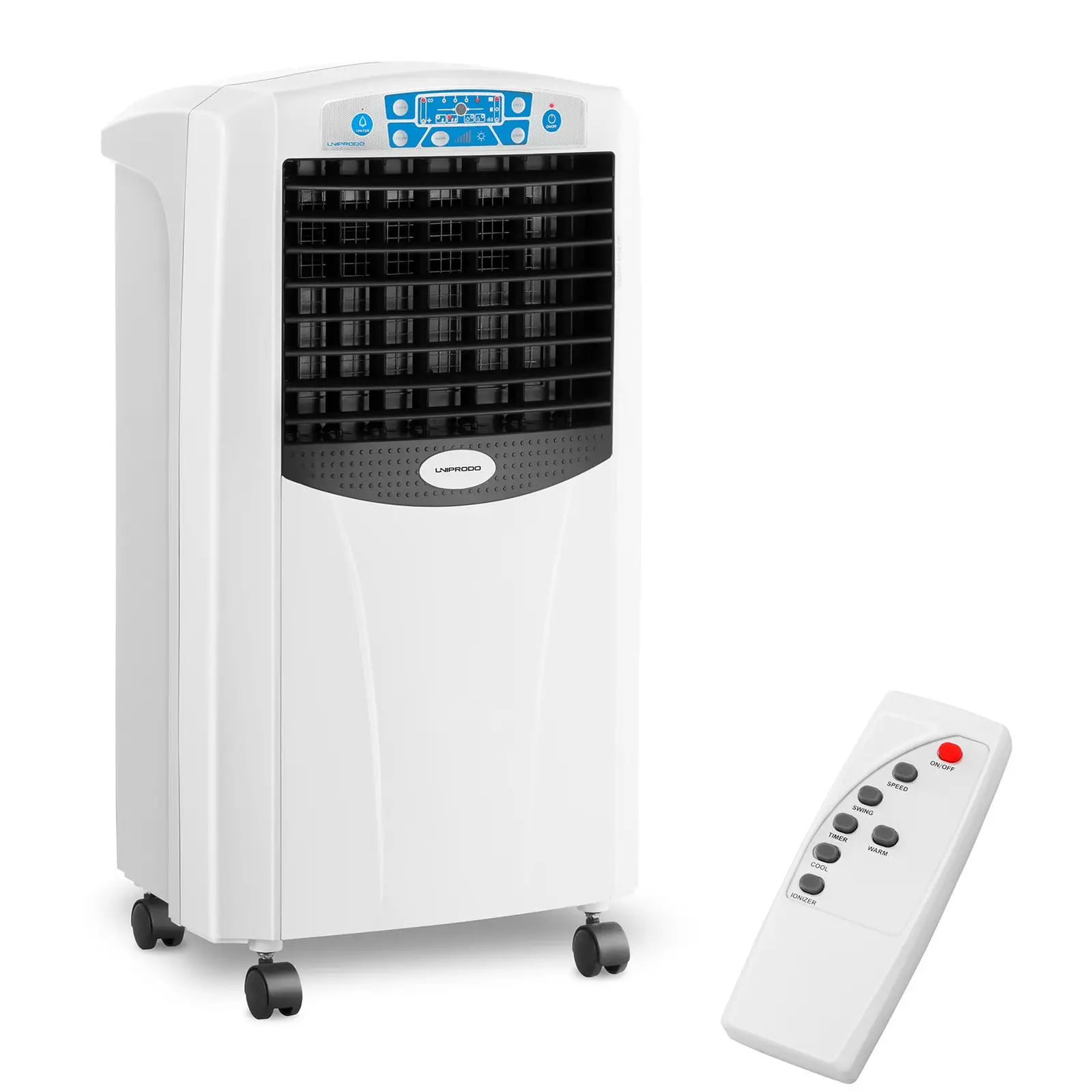
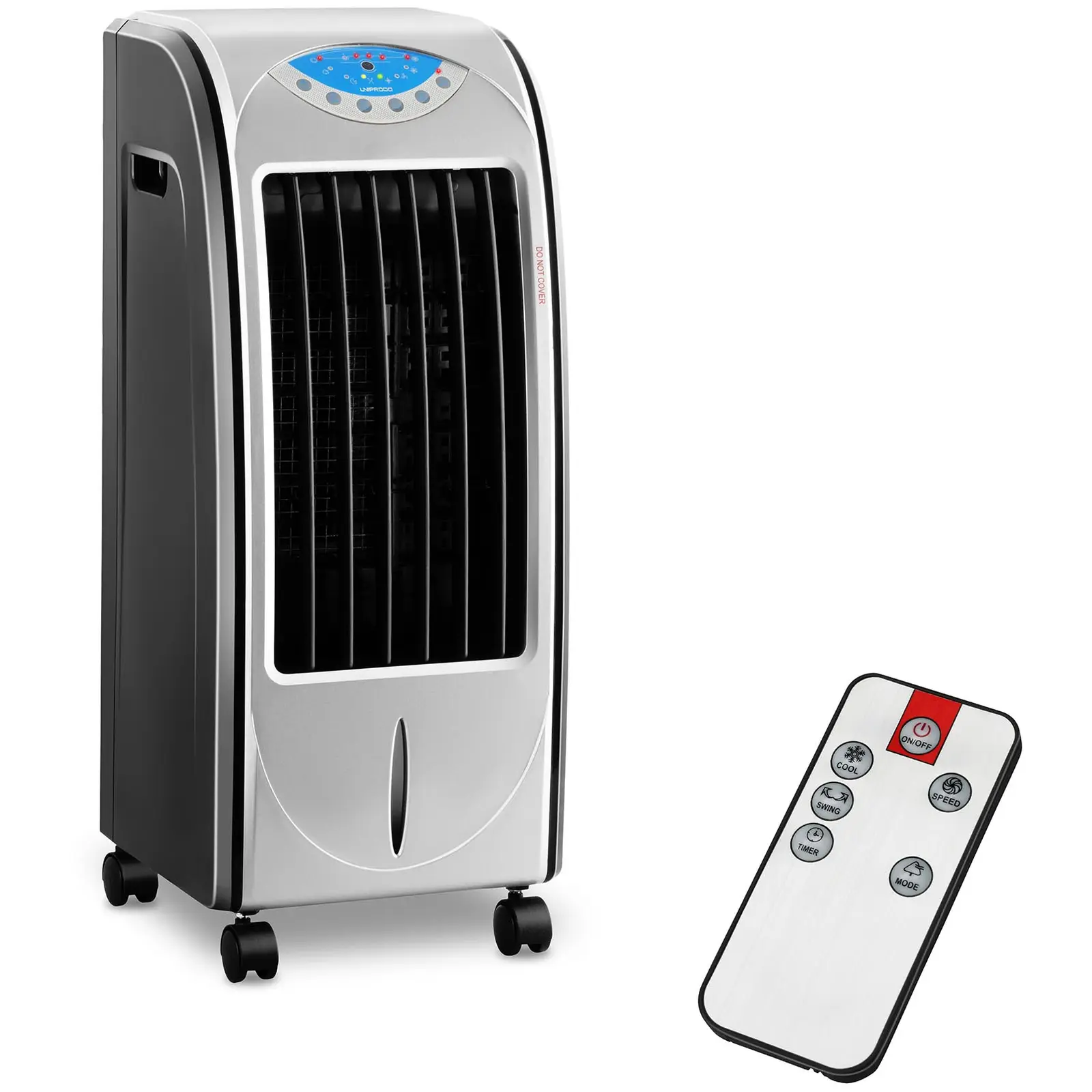
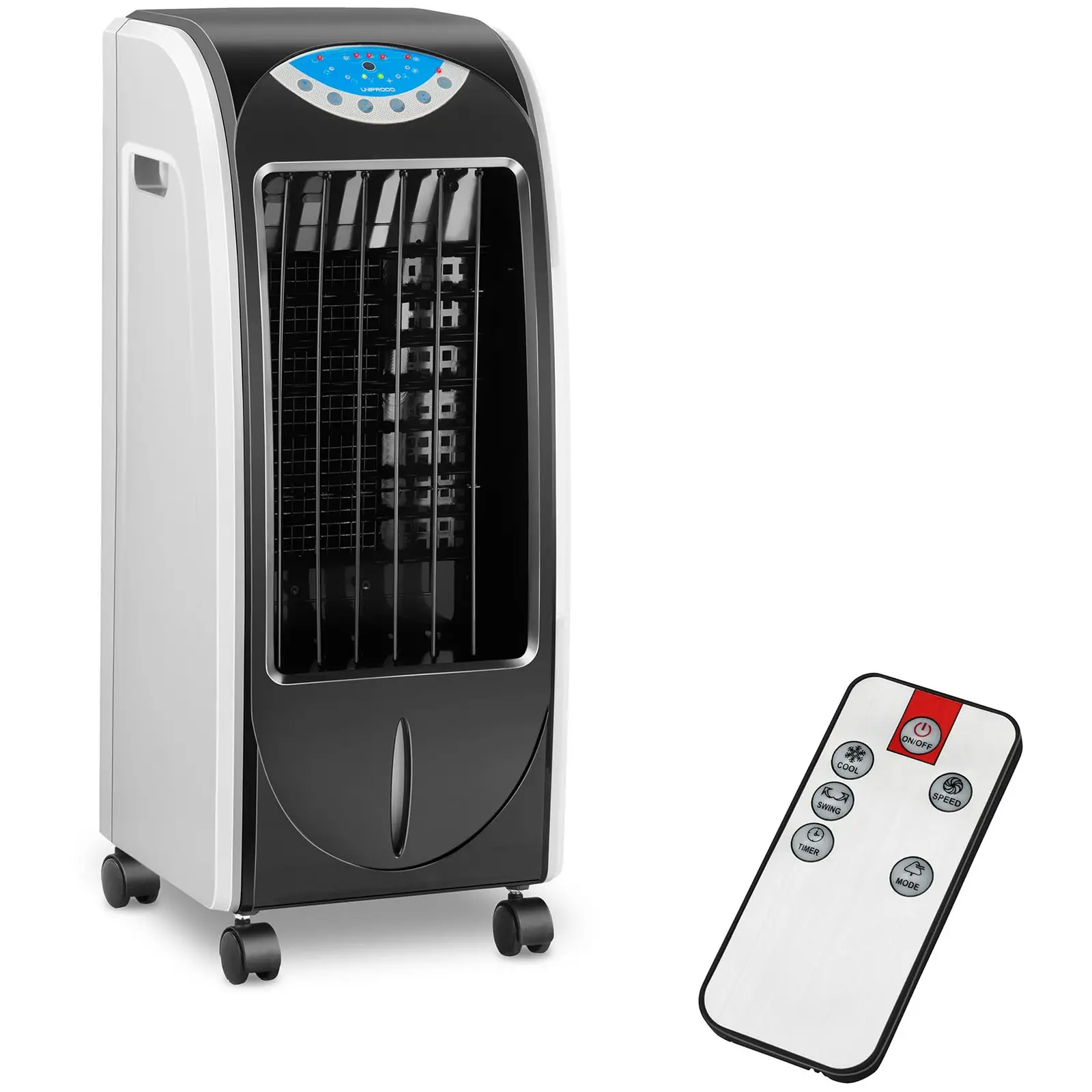
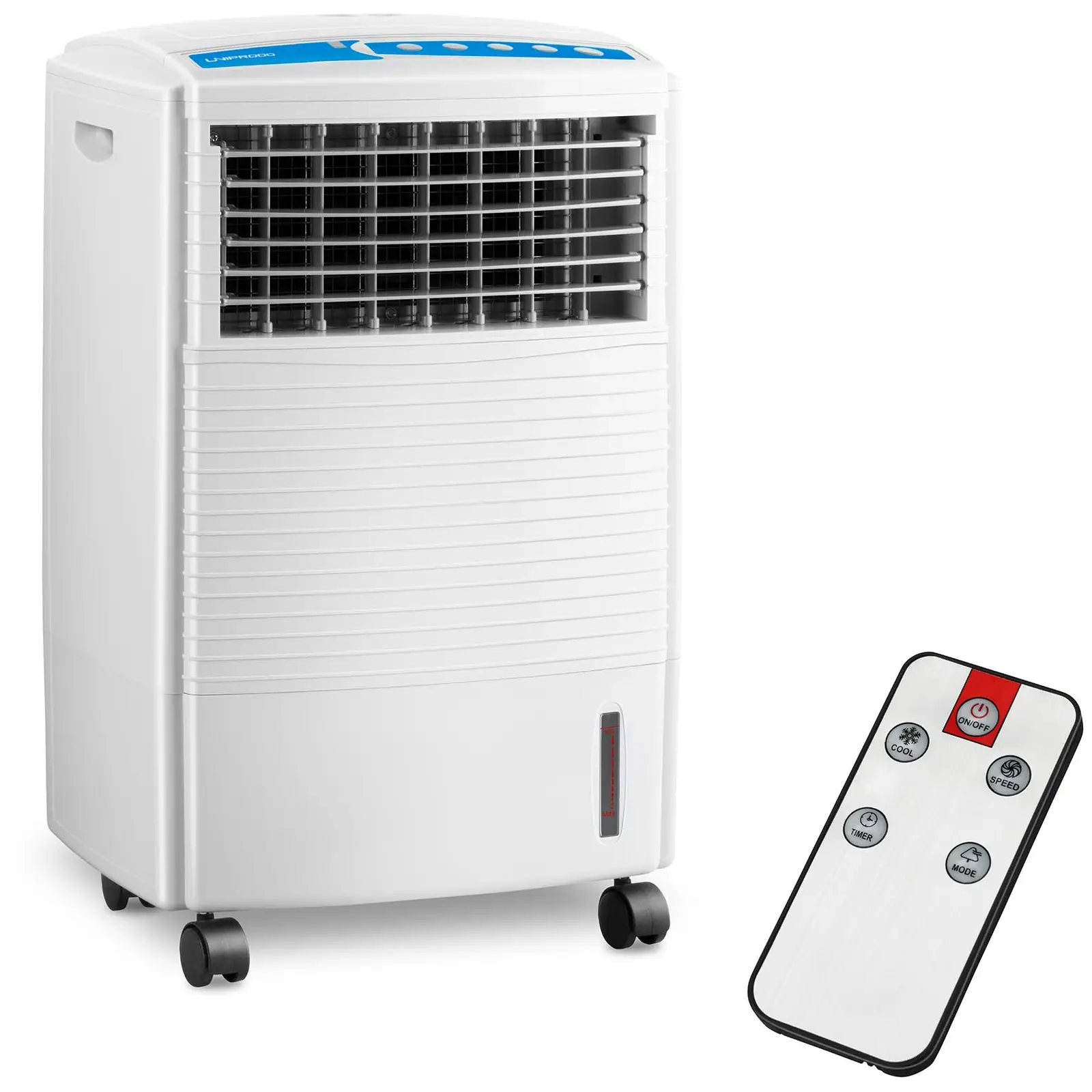
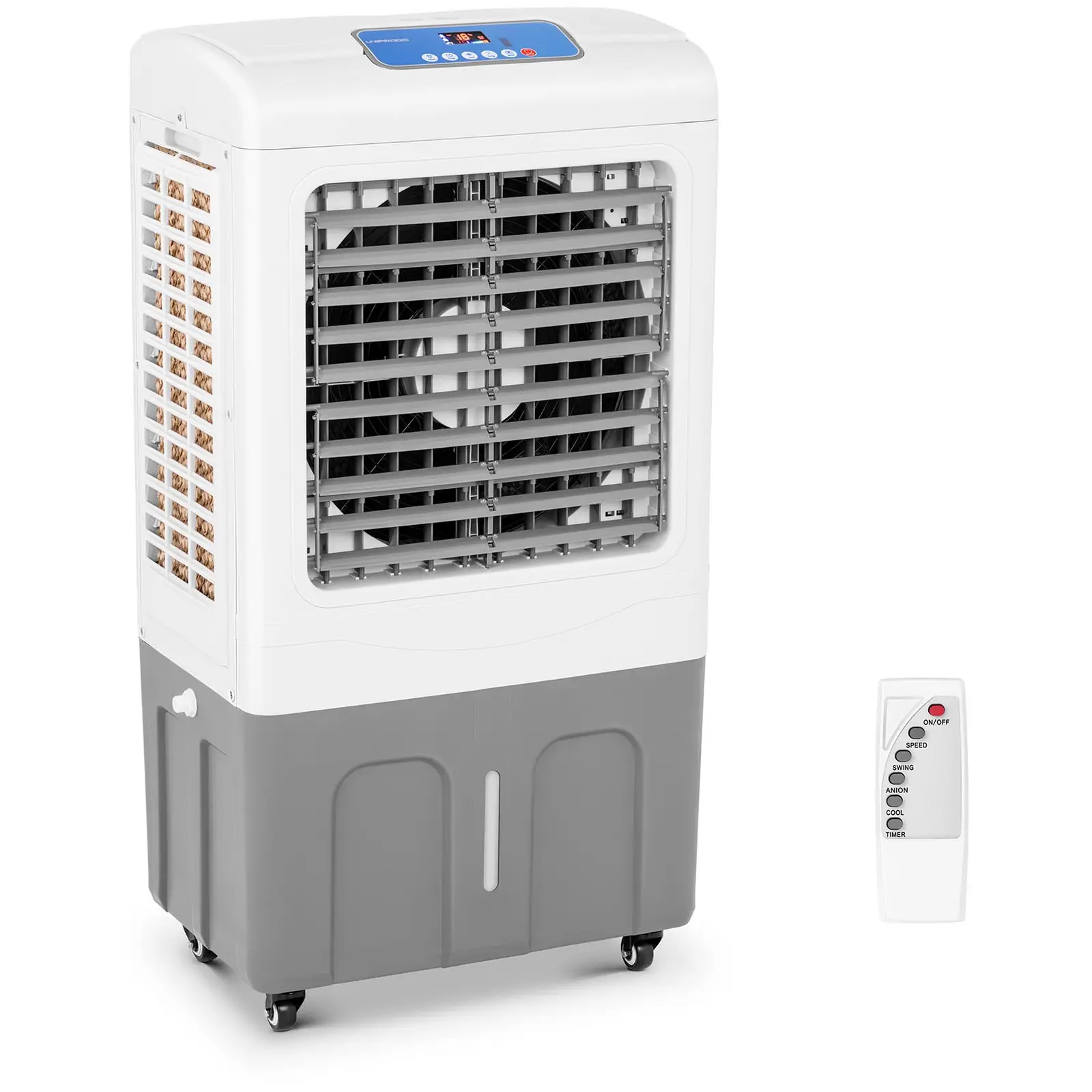
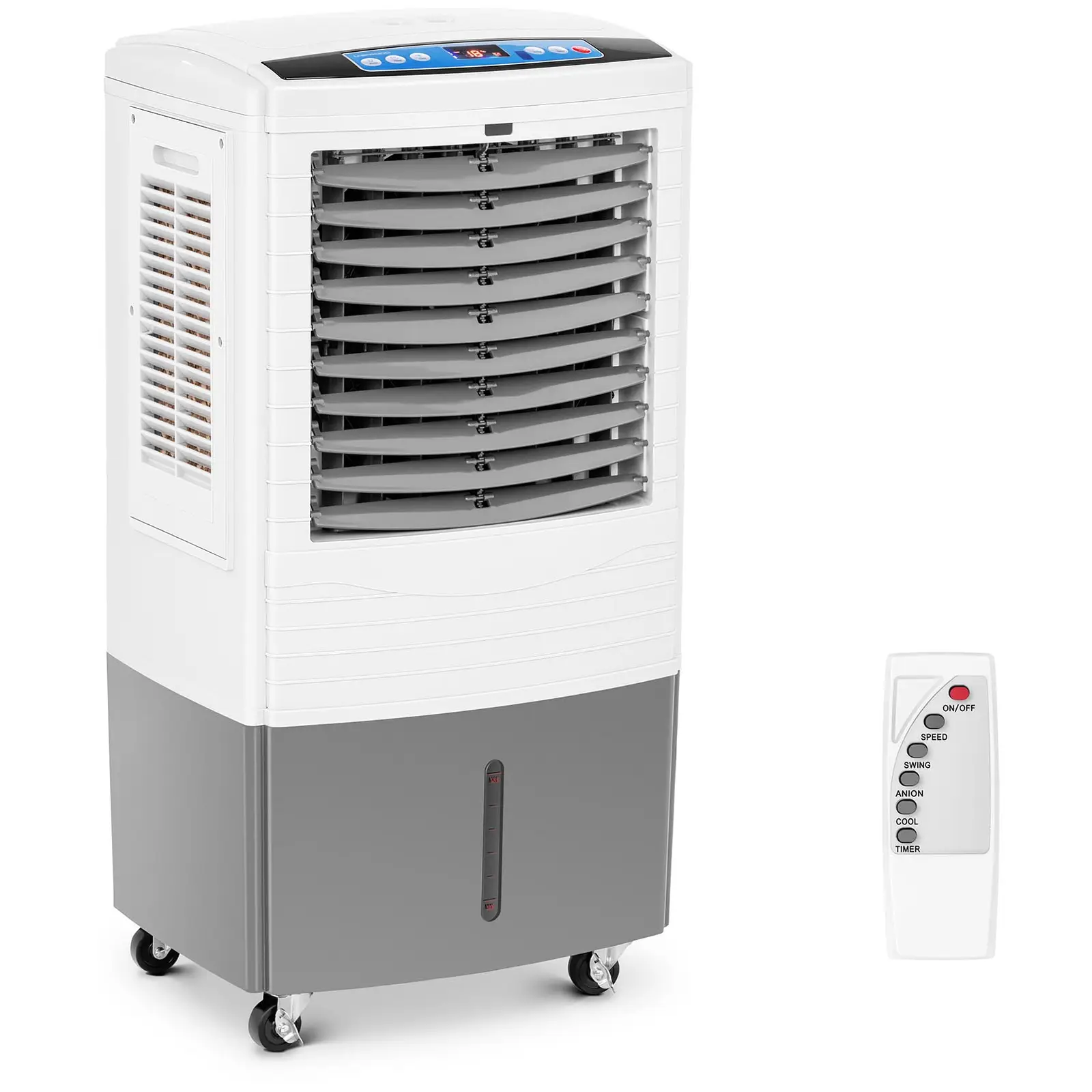
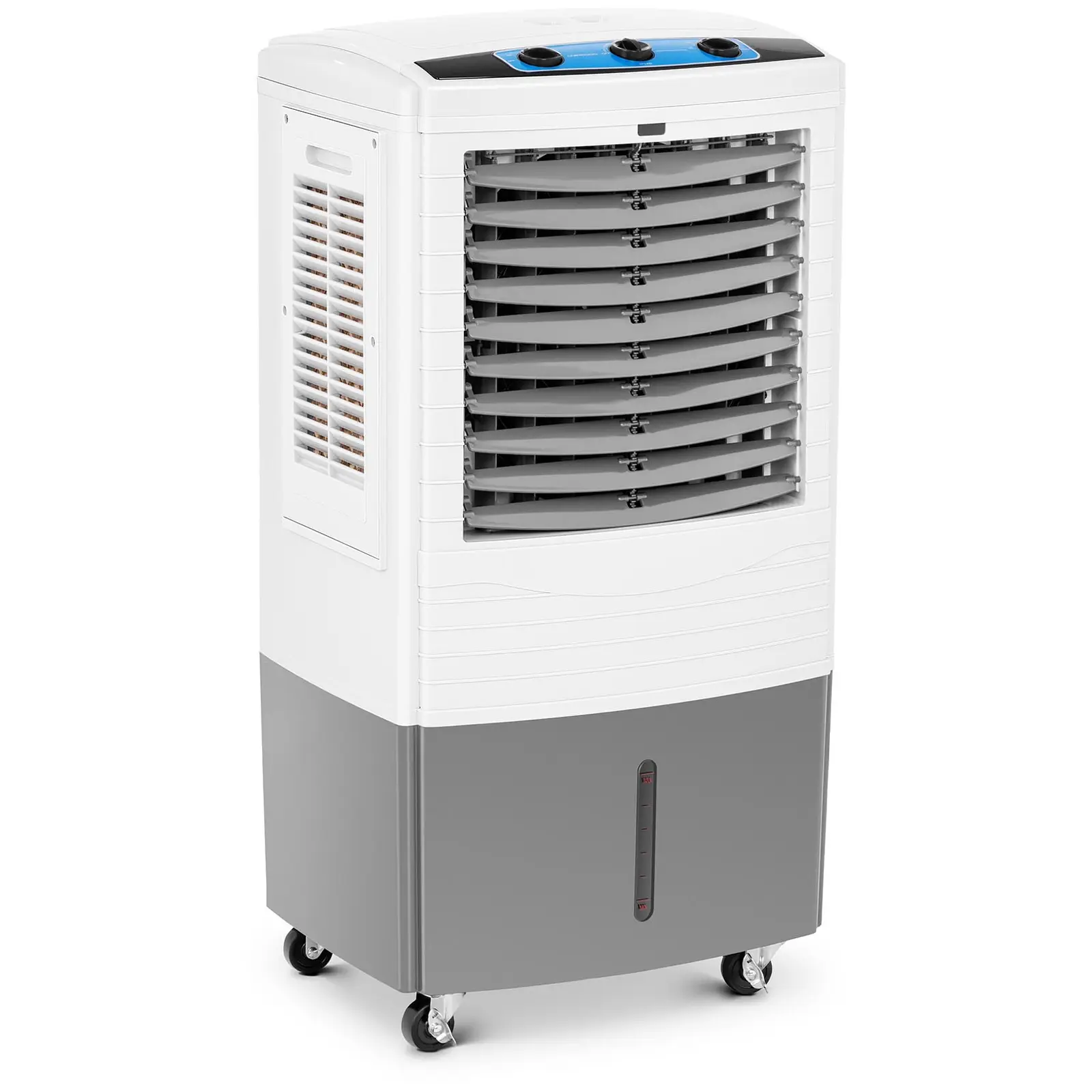
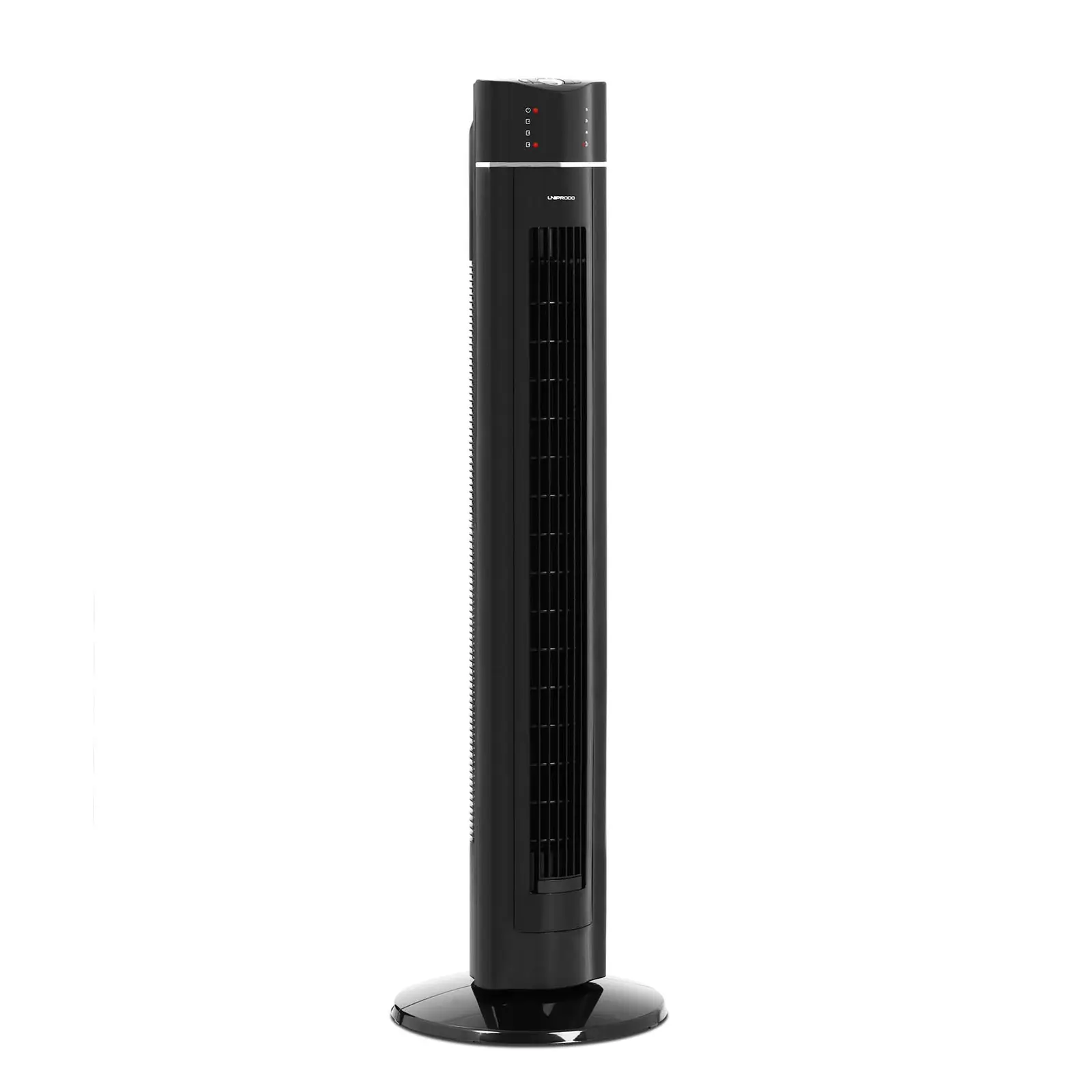






Share